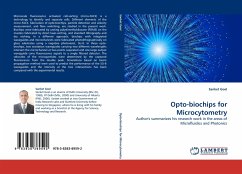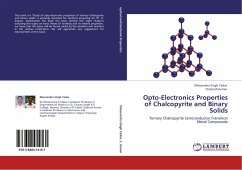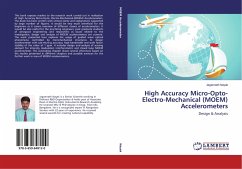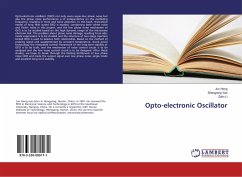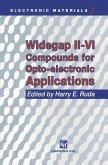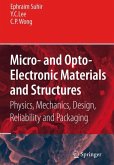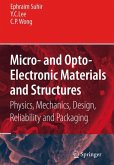Microscale fluorescence activated cell-sorting (micro-FACS) is a technology to identify and separate cells. Different elements of the micro-FACS, fabrication of opto-biochips, particle detection and velocity measurement, and flow switching, are studied in the present work. Biochips were fabricated by casting polydimethylsiloxane (PDMS) on the masters fabricated by direct laser-writing, and standard lithography and dry etching. In a different approach, biochips with integrated waveguides and microchannels were fabricated photolithographically on glass substrates using a negative photoresist, SU-8. In these opto-biochips, two excitation waveguides carrying two different wavelengths intersect the microchannel at two points separated and one large output waveguide carry fluorescence signals to a single filtered detector. The velocities of the microparticles were determined by the captured fluorescence from the double peak. Simulations based on beam propagation method were used to predict the performance of the SU-8 waveguides and the intensity at the two intersections has been compared with the experimental results.
Bitte wählen Sie Ihr Anliegen aus.
Rechnungen
Retourenschein anfordern
Bestellstatus
Storno

